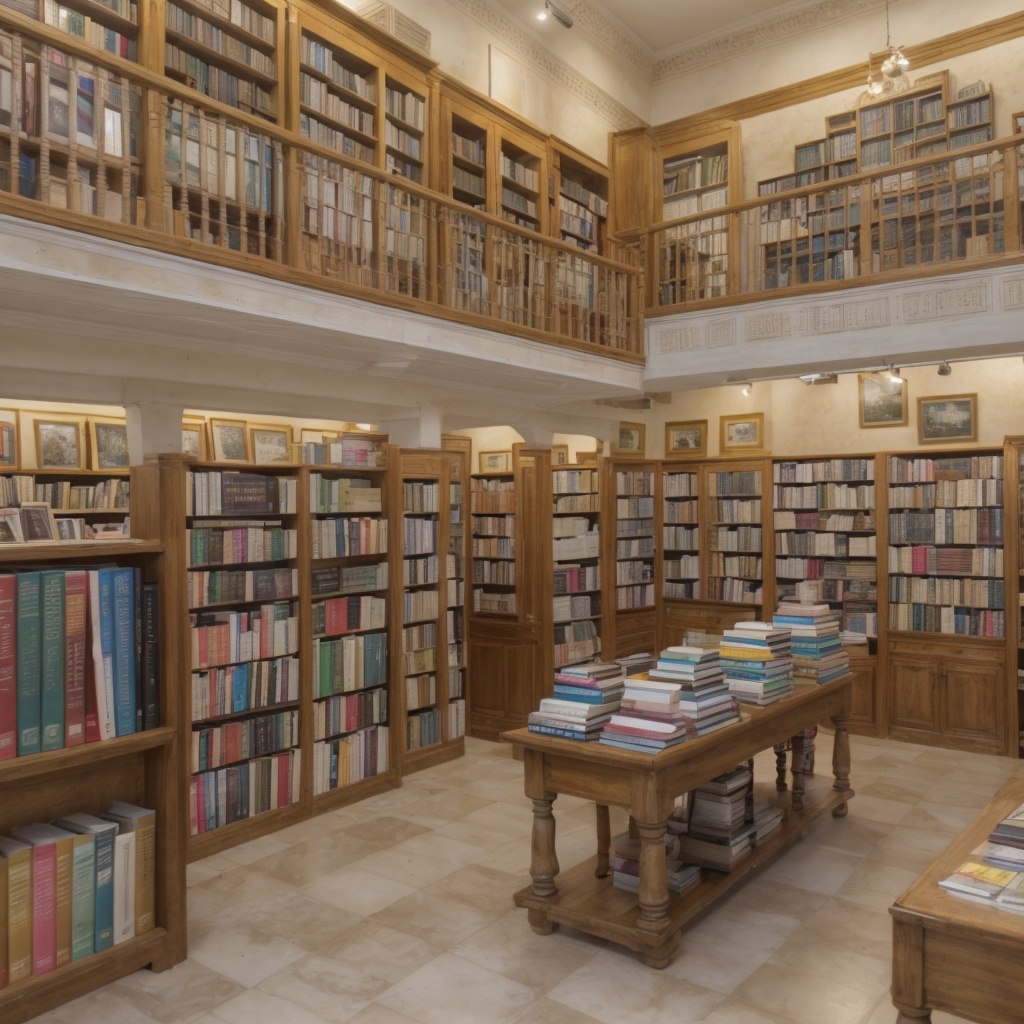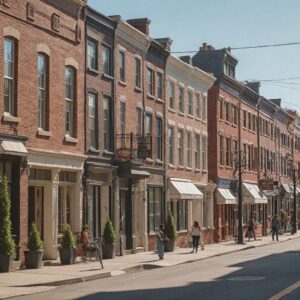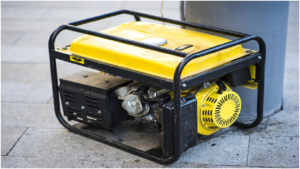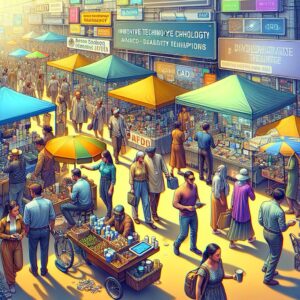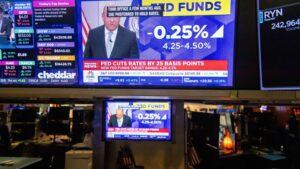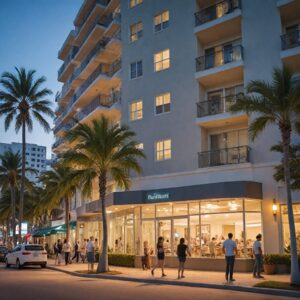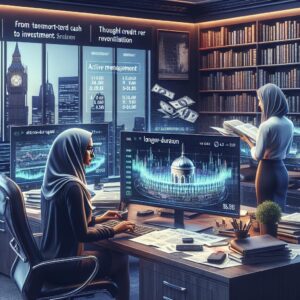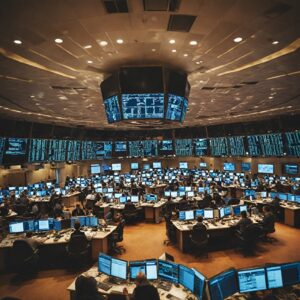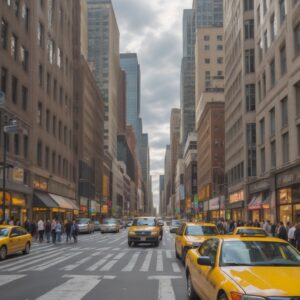summary
The Educational Bookshop and other Palestinian-owned bookshops in East Jerusalem, located on Salah Eddin Street, are known for their wide variety of books and for hosting numerous cultural and literary events. These establishments have been operational for over 40 years and serve as vital hubs of intellectual life, offering literature about the Middle East conflict, including works by Israeli and Jewish authors. These bookstores not only act as literature vendors but also play significant roles in the preservation of Palestinian cultural heritage and identity.
In a controversial incident, these bookstores were targeted in a raid by Israeli police, who detained the owners and confiscated hundreds of books on the grounds of alleged incitement to violence. The raid was widely criticized and described by rights groups as part of a harassment campaign against Palestinian intellectuals. It provoked international outrage and called attention to what is perceived as ongoing efforts to suppress Palestinian cultural expression and identity.
Following the incident, the UN Special Rapporteur for Palestinian Territories referred to the raided bookstores as an important cultural hub resisting Palestinian erasure under apartheid, and called for international solidarity. The incident also led to an increase in online censorship, with over 1,050 suppressions of content posted by Palestinians and their supporters documented between October and November 2023.
Viewed in a broader context, the raid on the bookstores highlights the struggle to preserve Palestinian cultural identity amidst ongoing political conflict and threats to built heritage. This incident, considered part of a systematic campaign of cultural erasure, underscores the integral role of these bookshops in fostering community, resisting oppression, and representing Palestinians.
The Bookstores Targeted
Located on the bustling Salah Eddin Street in Jerusalem, the Educational Bookshop is a prominent establishment owned by Palestinians. This bookstore hosts a wide array of cultural and literary events including readings, screenings, exhibitions, and talks. It is home to about 1,500 titles encompassing a variety of genres such as history, fiction, politics, poetry, and cookery, with many of the books focusing on Palestine and written in different parts of the world.
The Educational Bookshop has been in operation for over 40 years and serves as a hub of intellectual life in east Jerusalem, a region largely populated by the city’s Palestinian residents. This bookstore, standing tall with three floors, houses a large selection of books, primarily in Arabic and English. These books delve into topics about the conflict and the broader Middle East, including works by Israeli and Jewish authors. The shop enjoys popularity among researchers, journalists, and foreign diplomats.
Alongside the Educational Bookshop, the Muna family operates two other bookshops in East Jerusalem. One is the original Educational Bookshop, now primarily a stationery store, and the other is located in the American Colony Hotel.
However, these bookstores were subjected to a raid by Israeli police who detained the owners and confiscated hundreds of books on the grounds of alleged incitement to violence. Rights groups have described this raid on the branches of the Educational Bookstore as a part of a harassment campaign against Palestinian intellectuals.
The bookshops actively contribute to the preservation of Palestinian cultural heritage, which faces threats amidst the political conflict and destruction of built heritage and natural landscape. The shops also strive to conserve the historical and religious significance of sites in the face of targeted attacks, thereby contributing to the preservation of Palestinian identity and collective memory. Furthermore, the bookshops also support efforts in built heritage preservation and local development, strengthening cultural identity in Palestine.
The Educational Bookshop and its branches signify more than just stores; they are vital cultural institutions in Palestine and continue to play a crucial role in the face of adversity.
Details of the Incident
Israeli occupation forces, in their continuous attacks on Palestinian identity and cultural presence, raided the Yabous Cultural Center and the Edward Said National Conservatory of Music (ESNCM) in East Jerusalem on July 22. They confiscated documents and equipment after detaining the centers’ directors from their homes. This incident is a part of a broader campaign of harassment against Palestinian intellectuals, aimed at curbing their cultural activities and restricting their free speech.
The Israeli police further targeted two prominent bookstores in East Jerusalem: the Educational Bookshop and another Palestinian-owned bookstore in the Old City. During the raids, the owners of these stores, Mahmoud Muna and his nephew, Ahmed Muna, were detained on charges of “violating public order.” The police ransacked the bookshops, confiscated hundreds of books related to the conflict, and ordered their closure. The confiscated books were primarily those that had Palestinian titles or flags. Israeli officers reportedly used Google Translate to decipher the meanings of Arabic titles before confiscating the books.
CCTV footage from one of the branches of the Educational Bookshop shows police officers putting books into trash bags. The police justified their actions by stating that the books incited violence and supported terrorism. They specifically cited an English-language children’s coloring book titled “From the River to the Sea” as an example, which refers to the territory between the Jordan River and the Mediterranean Sea that includes Israel, the occupied West Bank, and the Gaza Strip.
These actions are a part of a broader campaign of censorship by the Israeli government. Since the commencement of the aggression, over 6,500 new items have faced censorship, a figure said to be approximately four times higher than before the conflict. The Israel Democracy Institute highlighted the increased scrutiny, with the Israeli army issuing an unprecedented English-language censorship order banning media agencies from reporting without the prior approval of its propaganda unit.
The incident sparked outrage and calls for the immediate release of the detained owners and a halt to the campaign of harassment against Palestinian intellectuals. It highlights the continuous attacks on Palestinian identity and cultural presence, contributing to what Al-Haq refers to as “cultural apartheid”.
Reactions to the Incident
The incident of Israeli police targeting renowned Palestinian bookstores in East Jerusalem has prompted a range of reactions. Guy Lurie, a research fellow at the Israel Democracy Institute, reported a significant increase in censorship of news items by the Israeli government, especially during the conflict period . Michael Omer-Man, former editor-in-chief of Israel’s +972 Magazine, noted that such explicit instructions for media censorship from the IDF were unprecedented and aimed at controlling the narrative surrounding the ongoing conflict .
Francesca Albanese, the UN Special Rapporteur for Palestinian Territories, expressed her shock and referred to the raided bookstores as “an intellectual lighthouse and family-run gem resisting Palestinian erasure under apartheid” . She urged the international community in Jerusalem to show solidarity with the affected Muna family and protect this important cultural hub .
A report by Human Rights Watch noted an increase in online censorship, documenting over 1,050 takedowns and suppressions of content posted by Palestinians and their supporters between October and November 2023 . They found that Meta, the parent company of Facebook and Instagram, was failing to meet its human rights due diligence responsibilities, effectively silencing voices in support of Palestine and Palestinian human rights .
The incident has emphasized the necessity of preserving Palestinian cultural identity. Palestinian artist Bashar Murad argues that there is a “mental war and a war on our identities,” emphasizing the power of the pen in times of conflict and the responsibility of the global literary and artistic community to preserve Gaza’s silenced voices .
Broader Context
The raid on Palestinian bookstores in East Jerusalem must be viewed within a broader socio-political context. Palestinians have a rich cultural, literary, and architectural heritage. However, this cultural identity has been threatened by the ongoing Israeli occupation, particularly in Gaza where cultural and literary scenes have been eradicated. This destruction of cultural heritage is seen as a form of dehumanization and a key stage of genocide, with a potentially profound and enduring psychological impact.
The Educational Bookshop has played an active role in resisting oppression, fostering community, and representing the Palestinians when they are colonized. It also contributes to the preservation of Palestinian heritage and the promotion of shared knowledge and understanding among Palestinians, Israelis, and foreigners.
There is an increasing number of incidents targeting journalists and intellectuals, including arrests, assaults, and cyberattacks, aimed at stifling voices that challenge the dominant narrative and stand in solidarity with the Palestinian struggle.
The demolition of Palestinian cultural heritage, potentially constitutes a war crime and contributes to the crime against humanity of apartheid. The Palestinians’ struggle to preserve their cultural identity thus becomes an integral part of their resistance against oppression. The global literary and artistic community, along with international civil society, has a crucial role to play in this struggle by preserving and amplifying Palestinian voices.
The content is provided by Jordan Fields, Financial Pulse Now

